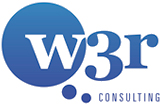The vitality of healthcare organizations is increasingly tied to the health of their IT department. Creating an IT ecosystem where medical devices, EHRs, big data platforms, and network components work in harmony takes skill and expertise that isn’t easy to come by. It’s that shortage of proficient people (along with other factors) that promise to increase healthcare IT salaries to even higher ranges through 2017 and beyond.
Budgets for Healthcare IT Are on the Rise
New ideas don’t become the norm overnight, especially in the healthcare industry. That’s why healthcare IT budgets have long been treated as a secondary consideration (at most). Now, as perspectives shift and healthcare providers see a strong IT department as part of their ancillary support system, IT budgets are getting a healthy bump.
In 2016 alone, 40% of healthcare providers reported that their IT budgets were growing to better leverage cloud capabilities, mobile accessibility, and analytics platforms. This year, 52% of healthcare CIOs are expected to increase their IT spending. Updating infrastructures from stationary relics to intuitive, mobile friendly platforms will only be part of the focus of their expanded budgets. Attracting the talent necessary to keep broadened IT systems running smoothly will increase emphasis.
Healthcare IT salaries are going to increase because more companies will be bidding for a limited talent supply. Securing valuable technical assets will encourage CIOs to offer more desirable compensation. Even though experienced healthcare IT professionals will have first choice, engaged tech pros with transferable skills will see no shortage of offers.
Awareness of Talent Shortages Are Reaching a Tipping Point
The primary focus of healthcare will always be enhancing overall patient experiences. Most minds in the industry only have peripheral awareness of any shortcomings in IT unless it directly affects patients. Quality care and preventative medicine will always be center stage. However, there is a tipping point we’re approaching where enough of the right people know about the healthcare IT talent shortage.
Surveys of healthcare CIOS show they feel they are affected by the IT skills shortage more than the averages reported by other industries. Where are the greatest needs? These skills gaps are pressing on the minds of healthcare CIOs:
- Big Data/Analytics: 45% of healthcare CIOs feel they suffer from an analytical talent shortage.
- Project Management: 36% of healthcare CIOs notice a deficiency in IT leadership.
- Change Management: 30% of healthcare CIOs have difficulty with talent to guide change management.
- Security & Resilience: 29% of healthcare CIOs have a hard time finding professionals to optimize security and enact best practices.
Beyond those specific disciplines, they’ll also be seeking out specific skills. Project Managers with the PMP Certification will be more highly demanded than those without. As realization of the shortage continues to sweep the market, healthcare IT salaries for candidates with those specific talents will continue to rise.
Higher Turnover Will Lead to Higher Healthcare IT Salaries
Take the pulse of the current talent pool and you will find a workforce that is regularly overworked. At least 55% of healthcare IT professionals are in a constant state of stress. A lack of experienced technical talent stretches the workweek and responsibilities of existing workers and erodes their morale. Take into consideration that half of healthcare professionals want higher salaries, and all the ingredients for even higher turnover are there.
In 2016, significant tech industry turnover surpassed high points in recent memory and odds are good that 2017 will sustain the trend. Healthcare organizations will then be faced with a few options. One, they’ll need to either naturally raise healthcare IT salaries to stem the tide of employee turnover, or react fast with counteroffers when fatigued employees attempt to leave.
Two, healthcare organizations conscious about their employee retention strategies (and who increasingly have the budget to take action) will need to seek healthcare IT talent to supplement their current workforce. In the process, we will see healthcare IT salaries continue to escalate as healthcare providers and payers attempt to prevent losing at this game of musical chairs.
Getting the Best Compensation in Healthcare IT
Because healthcare IT salaries are on track to go even higher this year, many assumptions about competitive compensation and top job benefits no longer hold true. In Michigan, the healthcare industry is seeing considerable growth and job seekers need to stay current with competitive offers to improve their bargaining power.

